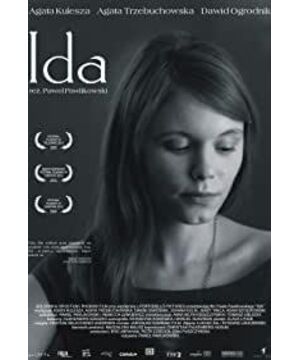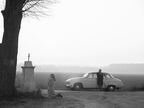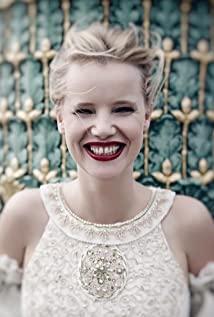that there are more and more new black and white movies, and I feel that it is actually very good. There are also unconventional movie ratios, such as 1:1 used by Mammy. This 4 to 3 is also very special, and it really shines for people like me who don't watch many movies.
The director's use of the lens is really special, all kinds of strange compositions. At first I was really not used to it, but gradually I felt it was very special and beautiful. The close-ups of many characters are cut from the shoulders, which is really strange. . This causes a lot of blank space to remain on the shot. If there is no dialogue, such a shot will appear very solemn and depressing. . .
The plot is about Poland in the 1960s. I wasn't very sure about the movie at first, but after reading the review's explanation of the background, I got a deeper understanding of the movie. In fact, it is a story of family search. Ida was killed when I was very young because her parents were Jewish, and Ida escaped because she was too young to recognize that she was Jewish, but she has since become an orphan. When I grew up and took the oath to become a nun, under the advice of other nuns, I found my only relative, my aunt. Then they started the story of looking for relatives. The process of looking for relatives slowly uncovered the back of the story, and slowly became suppressed. Finally, the bones of the relatives were found and buried in the family's grave. The search ends here. But because the wound in her aunt's heart was opened again in the process, she couldn't bear the pain and chose to commit suicide. This is what hits me the most about the whole film. My aunt is not a weak person. On the contrary, she has participated in the guerrillas and is now a judge, but she still can't accept this reality and chose to commit suicide.
On the other hand, Ida, maybe because of religious reasons, or because she was younger and had less exposure than her aunt, she didn't take a big hit. And this blow appeared in her religious beliefs, whether to become a nun or to give up a nun. After experimenting with sex and love, I believe she returned to the monastery. Maybe it was the cruel history, or maybe it was because of the answer from the music boy that he gave up his life outside and chose the monastery.
In fact, the whole story is really depressing, especially the part where my aunt jumped off the building is really depressing.
I originally gave it 4 stars, but I wanted to give it 5 stars as I wrote it. . .
View more about Ida reviews











